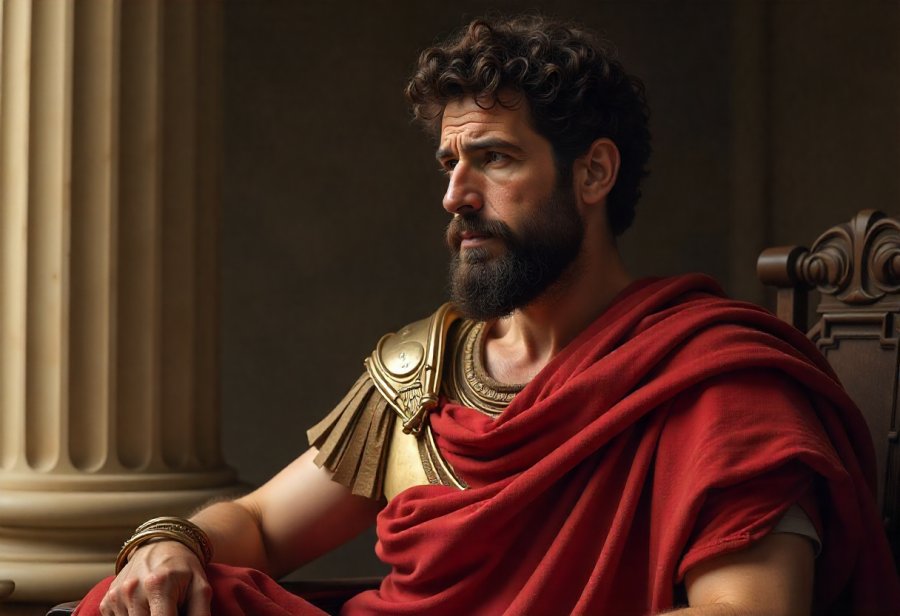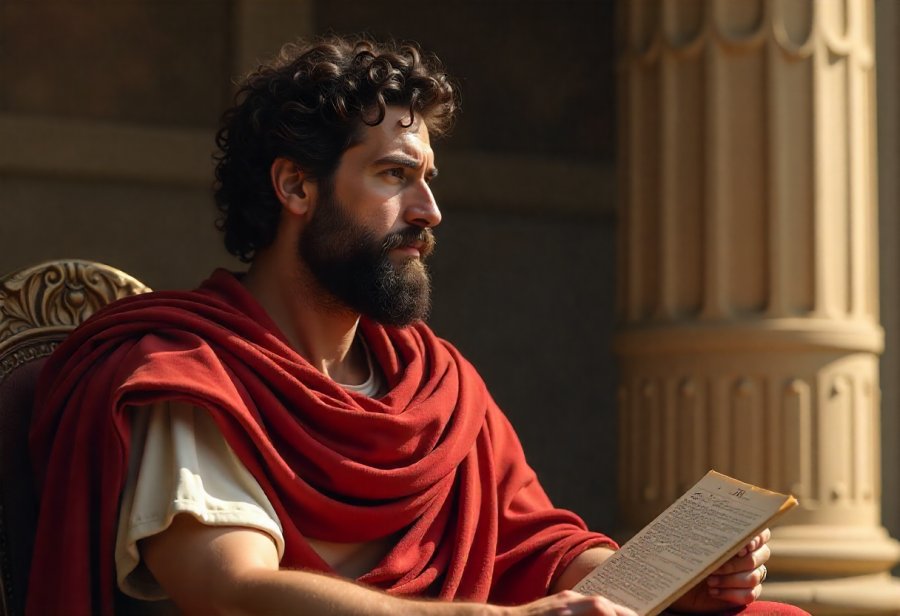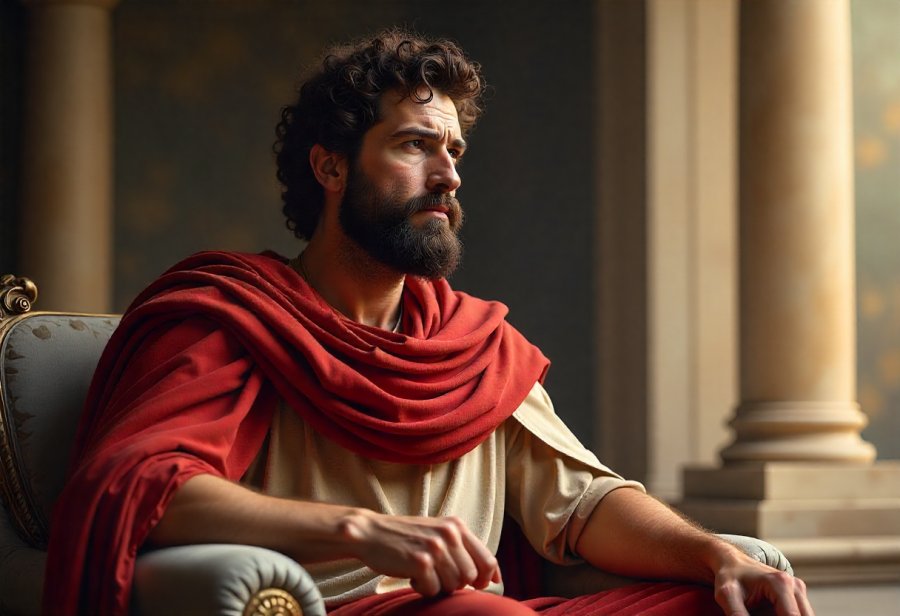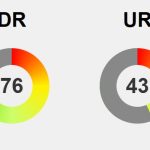Could true strength lie not in external conquest but in inner discipline? The life of Marcus Aurelius exemplifies this profound paradox. As a Roman emperor battling wars, plagues, and political unrest, he prioritized cultivating virtues like patience, humility, and self-awareness—values captured in his timeless Meditations. This focus on internal mastery reveals a leadership rooted in moral integrity rather than superficial victories. The contrast between outward achievements and inner resilience challenges us to reconsider what genuine power entails. As chaos and complexity increase in our modern world, the importance of developing inner discipline becomes even clearer. Marcus’s legacy reminds us that mastery over oneself—not empire—forms the true foundation of lasting influence. In a time where external success is fleeting, cultivating inner strength offers a resilient, enduring form of leadership that guides us through uncertainty with calm, purpose, and integrity.

Unveiling True Power: Inner Discipline as the Foundation of Strength
Strength is often associated with outward displays—military victories, political power, or material success. These visible signs of achievement are easy to recognize and often celebrated. But they don’t tell the full story of what it really means to be strong. Sometimes, true strength lies beneath the surface, in qualities like resilience, self-control, and inner discipline. These traits form a steady foundation that holds firm even when external circumstances are chaotic or challenging.
Philosophy, especially Stoicism, highlights this difference by emphasizing that while we can’t control everything outside us, we can govern how we respond. Shifting focus from external events to internal mastery reveals a deeper kind of power—one that’s enduring and less dependent on fleeting victories. Marcus Aurelius exemplifies this approach perfectly. As a Roman emperor facing wars, unrest, and personal loss, he prioritized cultivating virtues like patience, humility, and calmness. His writings in Meditations show a man committed to self-awareness and moral integrity, qualities that enabled him to lead with clarity amid chaos.
Inner discipline isn’t about suppressing impulses; it’s about deliberately shaping our reactions. Acting with purpose rather than reacting instinctively creates a resilient core that remains steady through life’s inevitable ups and downs. Small daily choices—like practicing patience, mindfulness, or reflection—build this strength gradually. Over time, these habits transform reactive tendencies into thoughtful responses, making us more resilient in the face of adversity.
This kind of strength is rooted in aligning actions with core values. When setbacks happen, viewing them as opportunities for growth instead of failures reinforces our inner resilience. Wisdom becomes applying knowledge thoughtfully and acting in accordance with principles rather than fleeting emotions. External achievements might impress others temporarily, but without inner discipline, their significance fades. True power comes from governing ourselves well, especially when external conditions are unpredictable.
Marcus Aurelius’s leadership illustrates how inner discipline sustains influence beyond external accomplishments. His focus on self-awareness and virtue allowed him to navigate crises with humility and purpose. His calmness was not weakness but a source of strength that inspired loyalty and respect. His example reminds us that genuine leadership starts within—by mastering our thoughts, emotions, and actions—creating a lasting foundation of inner strength that outlasts fleeting victories.
Building Inner Resilience: The Core Principles of Self-Control and Virtue
Inner discipline forms the core of what we often call true strength. It’s more than just resisting impulses; it’s about intentionally shaping how we respond to life’s inevitable challenges. When we act with purpose instead of reacting impulsively, we create a stable foundation rooted in integrity and self-control. This kind of strength isn’t flashy or easily seen, but it’s incredibly powerful—providing a steady anchor amid chaos and uncertainty.
Philosophy, especially Stoicism, offers a clear framework for understanding and cultivating this inner resilience. It teaches that external events are beyond our control, but our reactions and attitudes are within our power. This shift from trying to change the outside world to mastering ourselves is what makes inner discipline so vital. Marcus Aurelius demonstrated this perfectly through his writings, emphasizing daily reflection, self-awareness, and moral integrity—traits that helped him maintain clarity and calm during tumultuous times.
Building this discipline involves consistent effort and small, deliberate choices. It means choosing patience over frustration, mindfulness over impulsiveness, and purpose over complacency. Over time, these habits strengthen our mental toughness, enabling us to recover from setbacks and stay centered despite external pressures. Resilience isn’t built overnight but through repeated acts of self-control, gradually transforming reactive tendencies into thoughtful responses.
Inner discipline is also about aligning actions with core values. When setbacks occur, instead of reacting negatively, viewing them as opportunities for growth reinforces our inner resilience. Wisdom is applying knowledge thoughtfully and making decisions rooted in principles rather than fleeting emotions. External achievements may impress temporarily, but without inner mastery, their significance diminishes quickly.
Marcus Aurelius’s leadership highlights how inner discipline can guide us through turbulent times. His focus on self-awareness and virtue allowed him to govern with humility and clarity, inspiring loyalty and respect. His calmness was not a sign of weakness but a source of strength that helped him navigate crises with steadiness and purpose. His example reminds us that authentic leadership begins within—by governing our minds and spirits first.

Deepening Inner Mastery: Cultivating Calm, Purpose, and Wisdom
Inner discipline goes beyond resisting impulses; it’s about intentionally shaping our responses to life’s inevitable setbacks and challenges. When we act with purpose rather than react impulsively, we build a resilient core rooted in integrity and self-control. This discipline isn’t about perfection but consistency—showing up each day with awareness of our values and intentions. Over time, these small, deliberate choices strengthen our mental toughness, allowing us to face adversity with calm and clarity.
Philosophical frameworks like Stoicism provide practical tools for cultivating this inner strength. They remind us that external events are beyond our control, but our reactions and attitudes are entirely within our power. Marcus Aurelius exemplified this through his daily reflections, emphasizing the importance of self-awareness and moral clarity. These habits help us assess our responses and refine them, gradually transforming reactive tendencies into thoughtful, measured actions.
Resilience deepens when setbacks are viewed as opportunities rather than failures. Inner discipline teaches us to stay calm and centered amid difficulty, turning obstacles into lessons for growth. This mental toughness isn’t built overnight; it develops through consistent effort—choosing patience, mindfulness, and purpose over frustration or despair. As resilience grows, our ability to adapt and recover becomes an automatic response, reinforcing our inner strength.
Wisdom plays a key role in this process. It involves applying our knowledge thoughtfully and making decisions aligned with our core principles. External achievements may impress temporarily, but without inner discipline, they lack lasting significance. True influence stems from governing ourselves well, especially in turbulent times, which creates a foundation of trust and respect that endures beyond external success.
Marcus Aurelius’s leadership shows how inner discipline guides us through chaos with humility and clarity. His focus on self-awareness and virtues allowed him to govern with steadiness, inspiring loyalty and confidence. His calmness was not a sign of weakness but a source of strength, demonstrating that authentic leadership begins within. Cultivating this inner mastery ensures that our actions reflect our values, making us resilient leaders in any circumstance.
For those seeking practical guidance on developing this inner discipline, exploring resources on mindfulness practices can be highly beneficial. By integrating these techniques, you can deepen your understanding and application of inner mastery, leading to a more balanced and resilient life. To learn more, consider visiting mindfulness practices that align with these principles and support your journey toward calm, purpose, and wisdom.
Leading from Within: Practical Steps to Foster Inner Discipline and Authentic Leadership
Building inner discipline as a leader begins with small, consistent habits that foster self-awareness. Starting the day with a few quiet minutes for reflection sets a calm tone and helps you assess your mindset and reactions. Journaling these moments can reveal patterns of impulsiveness or knee-jerk responses, giving you clear insight into areas for growth. Over time, these simple routines create mental space, allowing you to pause before reacting and making deliberate choices rooted in your values.
Practicing mindfulness through focused breathing or brief meditation can be a powerful way to develop emotional regulation. When done regularly, these practices sharpen focus and help you stay centered during stressful situations. Just a few minutes each day can gradually strengthen your capacity to respond thoughtfully rather than impulsively, reinforcing your inner resilience and clarity in leadership.
Aligning your actions with your core principles is essential. Set intentional goals that reflect your values, keeping your behavior purposeful even under external pressure. When setbacks happen, viewing them as opportunities for growth instead of failures cultivates patience and perseverance. This perspective transforms challenges into lessons, reinforcing your inner strength and making your leadership more authentic and sustainable.
Leading by example heightens your influence within a team. Demonstrate calmness, integrity, and self-control in daily interactions. When colleagues see you managing stress gracefully and acting consistently with your values, they’re more likely to mirror that behavior. Your steady presence fosters a resilient, trustworthy culture—one that encourages others to develop their own inner discipline.
Developing genuine inner resilience isn’t about perfection but persistence. Small daily acts—like mindful breathing, reflection, or deliberate decision-making—compound over time, building a resilient core. The goal isn’t to eliminate all difficulties but to face them with calm and purpose, knowing that each effort strengthens your capacity to lead with clarity and integrity.
Patience and persistence are key. Every small step you take reinforces your inner strength, making it easier to stay centered amid external chaos. Over time, these habits become second nature, enabling you to navigate complexity with confidence. As your internal resilience grows, so does your ability to inspire and guide others through turbulent times.
Remember, authentic leadership begins within. By governing your mind and spirit first, you create a durable foundation that withstands external storms. Cultivating this inner discipline transforms your influence from fleeting to enduring, helping you lead with wisdom, humility, and purpose—qualities that inspire trust and loyalty in any circumstance.
Future Horizons: Embracing Inner Strength to Navigate an Evolving World
As the world continues to evolve rapidly, the relevance of inner discipline in leadership only grows sharper. External circumstances—whether driven by technological shifts, social upheavals, or global crises—can create chaos that tests even the most capable. Leaders who rely solely on external power or superficial successes risk losing their way amid the turbulence. In contrast, those who cultivate inner resilience and self-awareness develop a steady foundation that enables them to navigate complexity with clarity and purpose. Inner discipline transforms from a personal virtue into a strategic advantage, helping leaders stay true to their values and make thoughtful decisions, regardless of external noise.
Looking ahead, the most resilient leaders will be those who see inner strength as essential to effective leadership. As new challenges emerge, the ability to remain calm, reflect deeply, and act with intention becomes increasingly valuable. The timeless principles of self-mastery and wisdom remain vital guides, helping leaders avoid impulsiveness and stay aligned with long-term purpose. Developing inner discipline isn’t just about personal growth—it’s about creating a durable core that can adapt without losing integrity, inspiring trust and confidence even in uncertain times.
Advances in technology can support this shift toward inner resilience. Digital tools like mindfulness apps, reflection platforms, and virtual coaching make it easier to incorporate daily habits of self-awareness, patience, and emotional regulation into busy routines. As mental health and emotional intelligence take center stage in leadership development, investing in inner discipline will become a standard part of cultivating future-ready leaders. This focus not only enhances individual performance but also fosters organizational cultures rooted in authenticity and resilience.
Moreover, the emphasis on ethical leadership and social responsibility underscores the need for inward strength. Leaders governed by moral clarity and steady self-control build trust and inspire loyalty, creating a ripple effect that elevates entire organizations. Cultivating inner discipline ensures decisions are rooted in purpose rather than fleeting impulses, contributing to a culture of transparency and long-term impact. In this way, inner resilience becomes a foundation for meaningful influence that endures beyond immediate results.
Ultimately, the future belongs to those who understand that true strength isn’t measured by external victories but by mastery over oneself. Inner discipline offers a resilient core that withstands external turbulence and guides others with calm confidence. As the landscape shifts and complexities deepen, embracing this inner strength will be vital. It empowers leaders not only to survive but to inspire—wisely, humbly, and with lasting impact—shaping a legacy that endures well beyond the chaos of the moment.

Legacy of the Mind: Marcus Aurelius as the Epitome of Inner Strength and Wise Leadership
Marcus Aurelius stands as a timeless example of how inner strength shapes true leadership. As Roman emperor from 161 to 180 AD, he faced relentless challenges—wars along the Danube, political unrest, and personal grief—that tested his resilience. Yet beyond the battlefield and court, he dedicated himself to cultivating virtues like self-control, humility, and rationality, as reflected in his writings in Meditations. These reflections reveal a man committed to mastering himself, understanding that genuine power isn’t measured by external conquests but by inner discipline.
Throughout his reign, Marcus demonstrated that leadership begins within. Even amid military campaigns and political chaos, he maintained calm, clarity, and moral integrity. His focus on self-awareness allowed him to govern with humility and purpose, inspiring loyalty and respect. His inner calm was not a sign of weakness but a source of strength that helped him navigate crises with steadiness and resolve. This inner resilience became his most enduring legacy, illustrating how self-mastery sustains influence beyond external victories.
Marcus’s life underscores that true strength isn’t found in territorial expansion or material wealth. Instead, it lies in governing one’s mind and spirit with discipline and virtue. His daily reflections and emphasis on virtue-building show that authentic leadership is rooted in inner clarity. By choosing patience and humility over ego and reaction, he set a standard for leaders who prioritize moral integrity over superficial success.
His example also highlights that inner discipline fosters trust and loyalty. Leaders who govern themselves well—remaining calm under pressure and acting with purpose—create a culture of resilience and authenticity. Such a foundation allows others to follow suit, reinforcing the idea that lasting influence depends on inner strength rather than external accolades.
Marcus Aurelius’s story remains relevant today, reminding us that the greatest empire is the one built within. His mastery over himself enabled him to lead with grace amid chaos, demonstrating that true power is self-control and wisdom. This legacy encourages modern leaders to focus on inner discipline as the foundation for enduring influence—because in the end, strength that comes from within is the most resilient of all.






